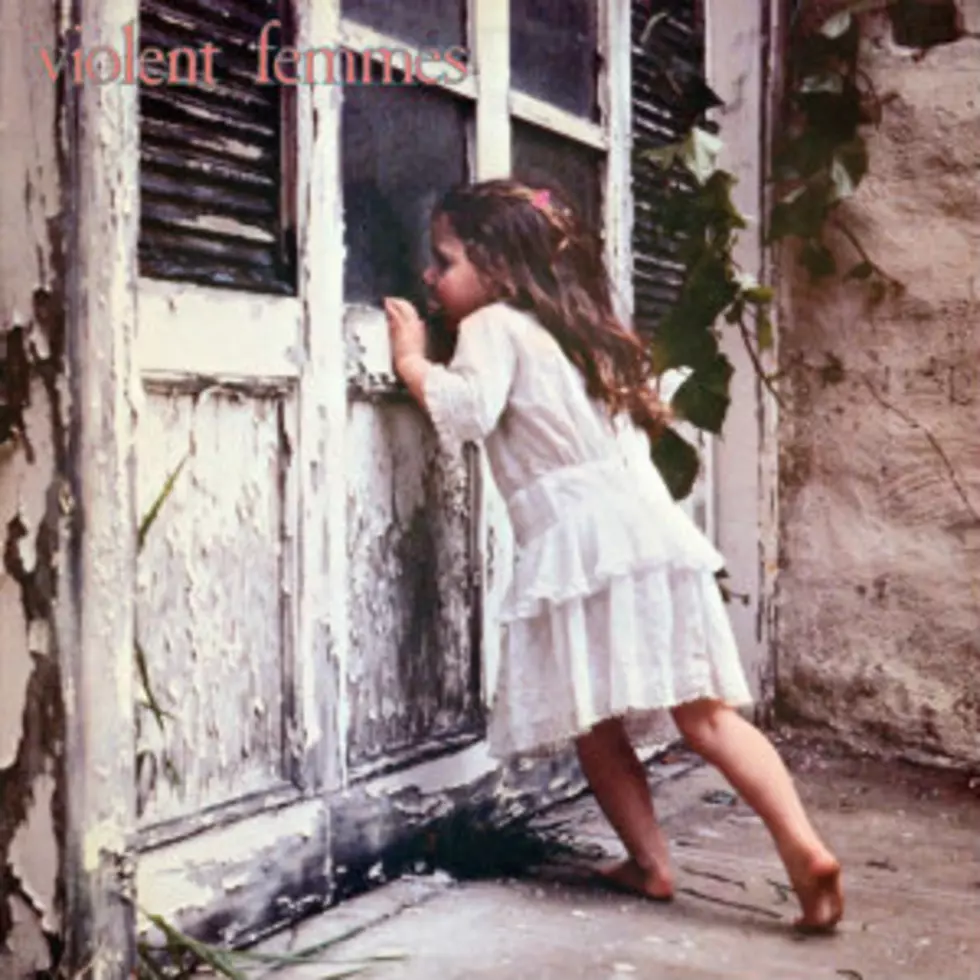
33 years Ago: Violent Femmes Release Their Legendary Self-Titled Debut
In retrospect, the arrival of the Violent Femmes was not without precedent. Their sound was informed by the itchy, angsty new wave of Talking Heads and the acoustic man-child musings of Jonathan Richman, but the arrival of the Femmes' self-titled debut in April felt like the arrival of something new under the sun. The edgy attack of post-punk had never been rendered so powerfully on acoustic axes, and the burgeoning college-rock realm had never had an anti-hero quite like Gordon Gano.
Years before MTV Unplugged made acoustic rock socially acceptable, singer-guitarist Gano, bassist Brian Ritchie and drummer Victor DeLorenzo were just street-corner buskers in their home town of Milwaukee, delivering rough and ready versions of Gano’s intense but tuneful songs. But when the trio were unleashed upon the world at large with their self-titled 1983 debut, their brash blend of folk, punk and pop quickly found itself an audience.
Gano wasn't even 20 yet when they released Violent Femmes, and he was singing straight from the dysfunctional psyche of the American teenager. In an appropriately adenoidal yelp, Gano spat out songs about his (or his protagonists’) fears, desires, rage, self-loathing and frustration and a new generation of indie rockers (though the term didn’t exist yet) was ready to embrace him.
Of course it didn’t hurt that all those attitudinal anthems were accompanied by a big batch of earworm hooks. Throughout the 10 songs, Ritchie and DeLorenzo provide frenzied backing with little more than an acoustic bass guitar and a snare drum with brushes to generate a mighty momentum while Gano scrubs madly at his guitar like there's a dying bird stuck in the sound hole.
The band had no way of knowing at the time, but the album's opening song, "Blister in the Sun," would become their signature song and the track that would turn them from an underground buzz band to alt-rock godheads. It's so ubiquitous and representative of the time period that it's become a go-to song for filmmakers who want to slyly indicate that a story is set in the '80s. It's an irresistible ode to awkwardness, reveling in its own discomfort and it's easy to lose yourself in the giddy geekiness.
During the opening of the album's second track, "Kiss Off," Gano dares to reach out for an emotional connection, but he’s rebuffed and his inner scars prod him to play the enfant terrible. With a mocking tone, he says, "I hope you know that this will go down on your permanent record," then counts out his stressors (family, heartache, headaches) before working himself into an ever-increasing fury and screams “everything” over and over again. It’s the kind of cathartic moment that immediately connected the Femmes to generation after generation of embattled souls struggling towards adulthood.
The tour de force, though, is “Add It Up.” The band are at their most aggressive, cranking out a punky rumble with Ritchie’s burly bass lines at its center while Gano plays out a potentially tragic tale of a young man’s unfulfilled lust leading him to violent extremes. All the while, Gano leaps back and forth between hard-up hustler, unhinged psycho, and Rimbaud-esque poet (“The city is restless, it’s ready to pounce”) with thrilling abandon.
But for all the emotional high-wire walking in these songs, the album would never have gained so much ground if not for the Femmes’ innate pop savvy. For example, no matter how desperate the mood becomes on “Prove My Love,” the Beatles-inspired backing vocals that pop up on the choruses provide a powerful lift to the proceedings. And even though listening to a song like “Promises” is a little like watching a therapy session play out entirely in one man’s head (“Do you know what it’s like to hate when it’s way down deep inside? / Oh God, I hate what’s been done to my life”), Gano can’t resist punctuating these uncomfortable observations with a tuneful, edge-of-satire ba-ba-ba refrain, like a Midwestern Morrissey.
If this kind of monomaniacal angst was the only string to this album’s bow, Violent Femmes would surely still have been just as impactful as it has become, but the band close the record with a shift in mood that provided a hint to the trio's depth and staying power. The finale, “Good Feeling,” is a tender, piano-laced ballad complete with a gentle violin solo that feels like a cross between Nick Drake and the mellower side of Television as Gano calls out to the elusive feeling of contentment that always seems to be slipping away from him just as he tries to embrace it. It’s an unselfconsciously beautiful moment that ends the album on an evanescent note.
But it was clearly just the beginning for the Femmes. Although their mainstream success didn't come overnight, their debut is the definition of a slow burner: It was certified gold four years after its release without ever having made an appearance on the Billboard 200. In fact, it didn't make it to the Billboard album chart until eight years after its release when the band's 1991 album, Why Do Birds Sing?, brought renewed interest.
And although the Femmes would go through their fair share of ups and downs in the decades that followed (including everything from multiple hiatuses to intraband lawsuits), the album they made while still mired in the murky passage to maturity proved timeless. It gave a soundtrack to the teenage malcontent in all of us.
25 Bands You Won't Believe Aren't in the Rock and Roll Hall of Fame Yet
More From The Moose 94.7 FM










